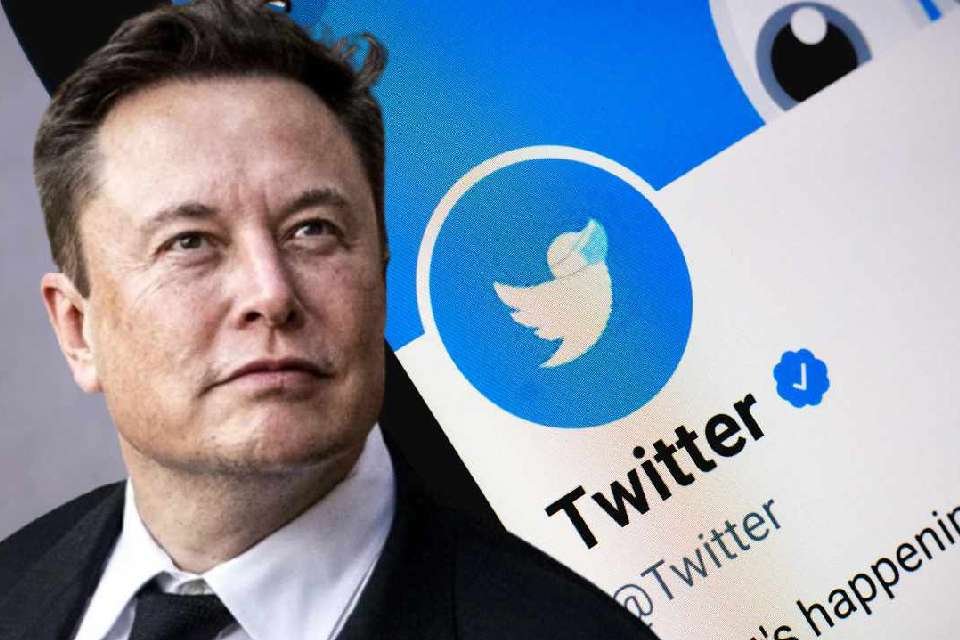
On Thursday, Elon Musk’s Twitter account suspended a number of journalists from major news organizations who covered him. This sparked outrage across the globe.
However, according to some legal experts, a different and possibly related move that Twitter made at the same time against a rival that was growing quickly could expose the company to regulatory scrutiny.
The platform also suspended Mastodon’s official Twitter account after it tweeted about the ElonJet account, in addition to suspending journalists who were covering a controversy about third-party tracking of Musk’s private jet.
Some Twitter users started tweeting links to their Mastodon profiles, some of them half-jokingly telling their followers where they could be found on the alternative platform in case they were also banned without warning from Twitter.
However, Twitter soon started putting up roadblocks, such as marking links to Mastodon as “unsafe” and potentially malicious, preventing users from adding Mastodon links to their profiles and blocking tweets containing those links.
Legal experts are now considering whether Twitter’s blocking of Mastodon links may have anti-competitive or other regulatory implications.
Bill Baer, the former top antitrust official at the Justice Department and the Federal Trade Commission under two distinct US administrations, stated, “You could see all sorts of problems, both from a standpoint of competition and consumer protection.”
In addition to concerns regarding hate speech on the platform and the potential precedent set by its suspension of journalists reporting on Musk, these inquiries bring some of the antitrust scrutiny that has been directed at larger tech giants Meta and Google to bear on Twitter. Additionally, they coincide with Twitter facing intensifying questions regarding its capacity to comply with a consent decree issued by the US government.
A request for comment was not received from Twitter, which has eliminated much of its public relations department.
Bill Baer, the former top antitrust official at the Justice Department and the Federal Trade Commission under two distinct US administrations, stated, “You could see all sorts of problems, both from a standpoint of competition and consumer protection.”
In addition to concerns regarding hate speech on the platform and the potential precedent set by its suspension of journalists reporting on Musk, these inquiries bring some of the antitrust scrutiny that has been directed at larger tech giants Meta and Google to bear on Twitter. Additionally, they coincide with Twitter facing intensifying questions regarding its capacity to comply with a consent decree issued by the US government.
A request for comment was not received from Twitter, which has eliminated much of its public relations department.
Twitter’s restrictions on Mastodon
Numerous Twitter users announced that they were migrating or expanding to Mastodon as news of the journalist suspensions spread. However, some attempts to direct users to the alternative platform appeared to be thwarted by Twitter’s sudden restrictions on link-sharing.
Virginia Democratic Rep. Don Beyer shared a screenshot of a Twitter system message stating, “Twitter is now attempting to prevent its users from navigating to the official social media accounts of elected officials on other platforms,” warning that Beyer’s link to his Mastodon profile was “potentially spammy or unsafe.”
Other users, like Patrick LaForge, editor at the New York Times, noticed that when they tried to add links to Mastodon to their Twitter profiles, Twitter was sending error messages saying that the links were “considered malware.”
In its own testing, CNN found that Twitter blocked attempts to tweet links directing users to a Mastodon profile, which confirmed some of the reports. Users were able to circumvent the restrictions by sharing Mastodon user handles in plain text and utilizing link-shortening services that concealed the destination URL. However, the blocking of links went on into Friday afternoon.
In violation of Twitter policies, Musk has falsely claimed that the suspended journalists shared real-time information about his physical location. The new owner of Twitter abruptly left the conversation after one of the suspended reporters challenged Musk’s claim in a Twitter Spaces event that Musk spontaneously dropped in on Thursday evening.
Mastodon’s founder and CEO, Eugen Rochko, has amplified a public report about Twitter’s link blocking, but he has not addressed the issue. Rochko has been contacted by CNN for comment.
A fast-growing rival
While there are a few distinctions in how the two stages work, Mastodon’s client experience repeats a significant part of the essential Twitter usefulness. Twitter is a lot bigger, flaunting exactly 238 million clients to Mastodon’s 1,000,000, however the last option has developed quickly since Musk gained Twitter. In the primary week and a half after Musk finalized his Twitter negotiation, Mastodon acquired countless clients, and the movement has just gone on from that point forward.
The Federal Trade Commission, whose chair, Lina Khan, has pledged to crack down on novel ways in which tech platforms might try to hurt competition, may be interested in Twitter’s move to block links to a new competitor.
Legal experts say that regulators might have a case if they could demonstrate that Twitter intentionally used the link blocking to maintain some form of market dominance and thwart a potential competitor.
Companies are generally free to choose their business partners and are not obligated to do so. However, if a dominant company, known as “market power,” refuses to deal with other parties, they may violate antitrust law.
According to Charlotte Slaiman, competition policy director at the consumer advocacy group Public Knowledge and a former FTC antitrust official, this idea of a “duty to deal” is probably the most relevant to this situation.
Slaiman stated, “If Twitter has market power, it may have some duties to deal with competitors.” I think duties to deal is a very important area of antitrust law in the tech industry, but it has been aggressively narrowed in recent decades.
Slaiman added that the FTC has shown an increased interest in duty-to-deal cases through recent policy statements under Khan, a vocal tech skeptic. In addition, as part of a larger lawsuit aimed at dissolving the social media giant, the FTC asserted that Facebook had engaged in anti-competitive behavior during the Trump administration by effectively blocking access to Vine, a video platform owned by Twitter. A federal judge later dismissed the FTC complaint, but Khan resubmitted it with slightly different arguments.)
A potentially complicated case
A case spinning around obligation to arrangement would probably have to contend that Twitter had hurt itself some way or another by confining Mastodon connect sharing — maybe by making itself less inclined to get approaching traffic from Mastodon, or by making itself less alluring to sponsors as an open stage. In addition, it would likely need to demonstrate that Twitter’s actions have harmed Mastodon further by removing something essential (in this case, an influx of new users).
But before that, a judge would have to agree that Twitter has “market power,” or dominance in a particular market, which is something that regulators would have to describe and explain in any lawsuit. Before prosecutors could even attempt to argue that Twitter’s behavior was anti-competitive, that definition would need to pass muster with the judge. It could take many different forms.
It very well may be an extreme case, Baer and Slaiman said.
Baer went on to say that Twitter’s link blocking doesn’t just make people worry about competition. Additionally, it raises concerns regarding Twitter’s stated justifications for blocking the links and whether those justifications can withstand scrutiny by consumer protection authorities.
The link that Beyer shared to his own Mastodon profile was not malicious, as stated in his tweet. Additionally, Twitter’s assertion that links to Mastodon were risky did not appear to have any basis prior to Thursday.
According to Baer, the FTC could try to argue that Twitter acted unfairly or deceptively if the company misled the public by claiming that Mastodon links were spam or malicious when the company knew they were harmless.
Historically, the FTC has had a lot of leeway in prosecuting alleged unfair and deceptive business practices. And most importantly, there is no need to demonstrate market power in those cases.
The Mastodon issue may result in additional scrutiny that the company cannot afford, given that the FTC is already closely monitoring Twitter’s behavior under Musk.


